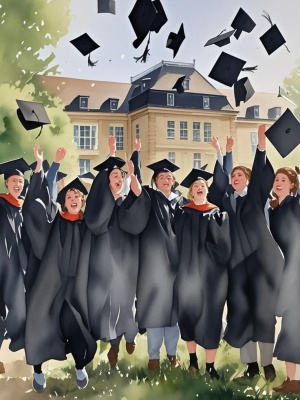The Art of Watercolor Sketch Drawing: A Comprehensive Guide
Watercolor sketch drawing is a captivating art form that combines the spontaneity of sketching with the fluid beauty of watercolors. This technique allows artists to create expressive, loose, and vibrant artworks that capture the essence of a subject with minimal strokes. Whether you're a beginner or an experienced artist, mastering watercolor sketch drawing can elevate your artistic skills and open new creative possibilities.
Understanding Watercolor Sketch Drawing
Watercolor sketch drawing differs from traditional watercolor painting in its approach and execution. While traditional watercolor focuses on detailed, layered compositions, watercolor sketches emphasize immediacy and gesture. This style is particularly popular for travel journals, urban sketching, and quick studies of landscapes or figures.
Key Characteristics of Watercolor Sketches
- Loose, expressive brushstrokes
- Minimal color palette
- Quick execution
- Emphasis on light and shadow
- Preservation of white space
Essential Materials for Watercolor Sketching
The right materials can make a significant difference in your watercolor sketch drawing experience. Unlike traditional painting, sketching requires portable and quick-drying supplies.
Basic Watercolor Sketching Kit
- Watercolor sketchbook (140lb cold-pressed paper recommended)
- Travel-sized watercolor set (pans or tubes)
- Round brushes in sizes 6 and 10
- Water brush for on-the-go painting
- Mechanical pencil or waterproof ink pen
- Small water container and paper towels
For more advanced techniques, consider exploring our AI Painting Guide which includes digital alternatives to traditional watercolor methods.
Common Challenges and Solutions in Watercolor Sketching
Many artists face specific challenges when starting with watercolor sketch drawing. Below is a problem-solution matrix to help overcome these hurdles:
| Problem | Solution |
|---|---|
| Colors appearing muddy | Limit your palette to 3-5 colors and let layers dry completely |
| Lack of spontaneity | Practice quick gesture drawings before adding color |
| Paper buckling | Use heavier paper (300gsm) or stretch your paper beforehand |
| Overworking the sketch | Set a time limit (15-30 minutes) for each sketch |
Techniques for Beautiful Watercolor Sketches
Mastering a few fundamental techniques can dramatically improve your watercolor sketch drawing results. These methods help create dynamic, lively sketches with minimal effort.
Wet-on-Wet Technique
This classic watercolor method involves applying pigment to wet paper, creating soft, diffused edges perfect for skies, water, or atmospheric effects in your sketches.
Dry Brush Technique
Using a relatively dry brush on dry paper creates textured, broken strokes ideal for depicting rough surfaces like tree bark or stone walls in urban sketching.
Negative Painting
This advanced technique involves painting around the subject to define its shape, creating depth and interest in your watercolor sketches.

For inspiration on applying these techniques to different subjects, visit our gallery featuring various watercolor sketch styles.
Digital Alternatives: AI-Assisted Watercolor Sketching
With advancements in technology, artists now have access to digital tools that can simulate watercolor sketch drawing effects. These tools are particularly useful for:
- Quick concept development
- Experimenting with color schemes
- Creating consistent artwork series
- Producing editable digital files
Our AI Art Guide provides comprehensive information about blending traditional techniques with digital tools for stunning results.
Conclusion: The Joy of Watercolor Sketch Drawing
Watercolor sketch drawing offers a unique blend of spontaneity and control, making it one of the most rewarding artistic practices. Whether you prefer traditional methods or digital alternatives, the key to success lies in regular practice and experimentation. Remember that the beauty of watercolor sketches often lies in their imperfections and the artist's personal touch.
For those interested in exploring more artistic techniques, check out our Portrait to Art Detail guide for transforming photographs into artistic interpretations.
To further your knowledge, consider these authoritative external resources:
- Handprint Watercolor - Comprehensive watercolor techniques
- Urban Sketchers - Global community of sketching enthusiasts